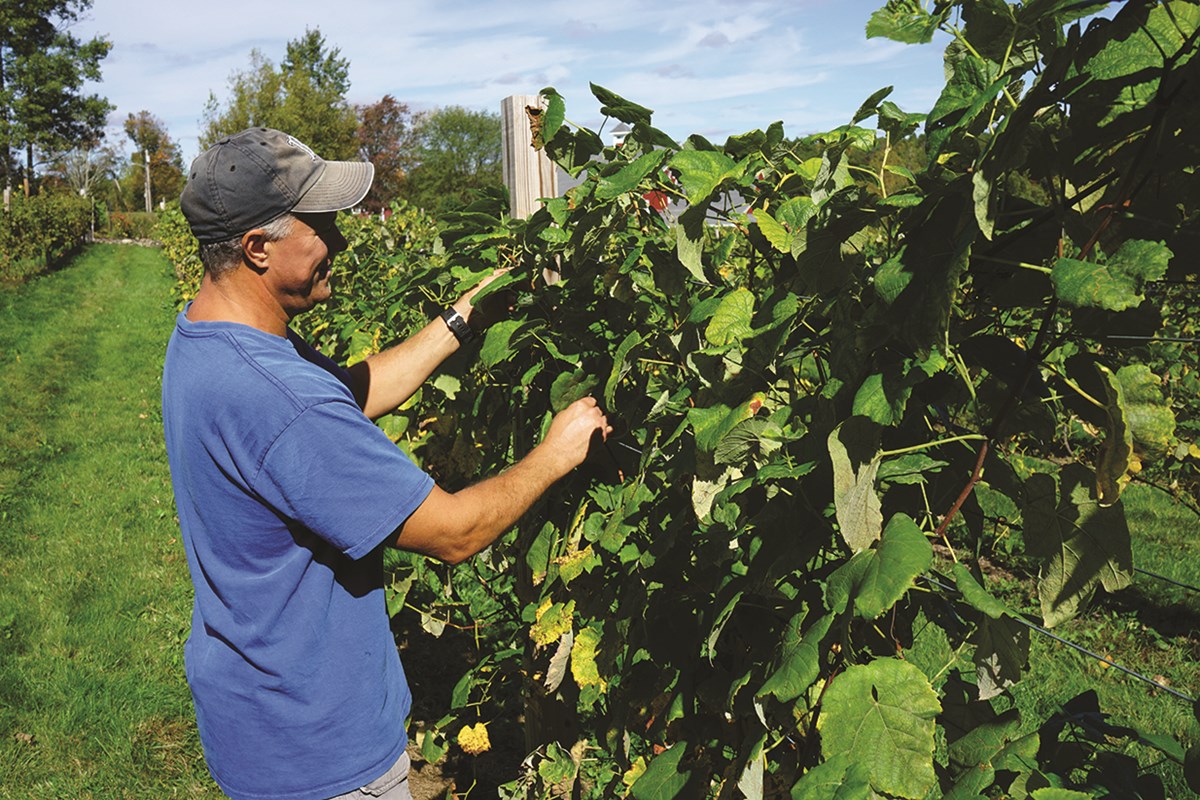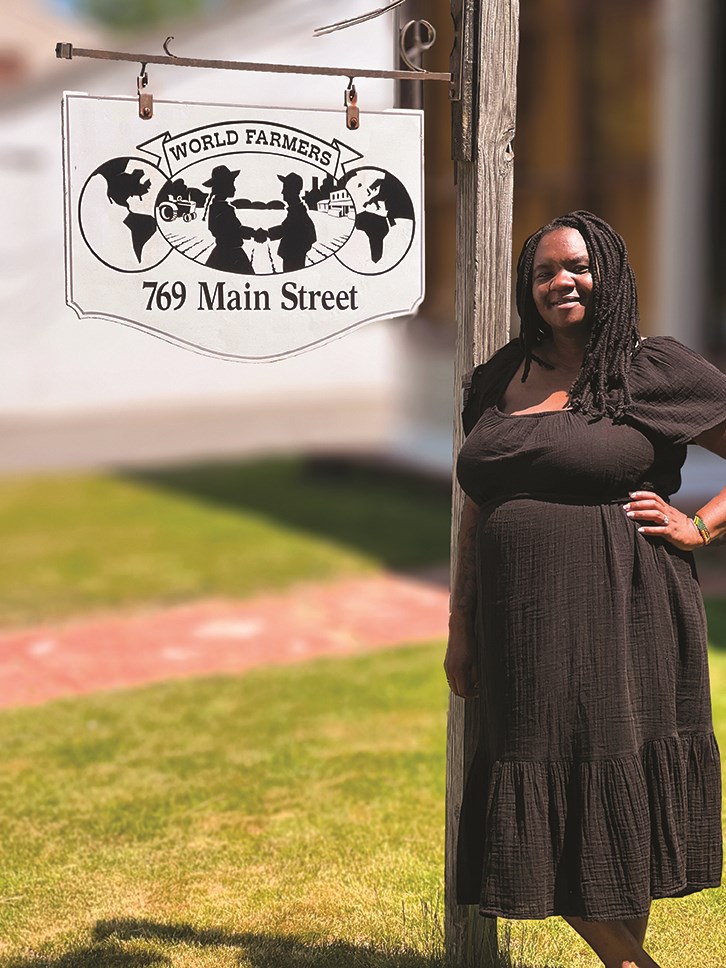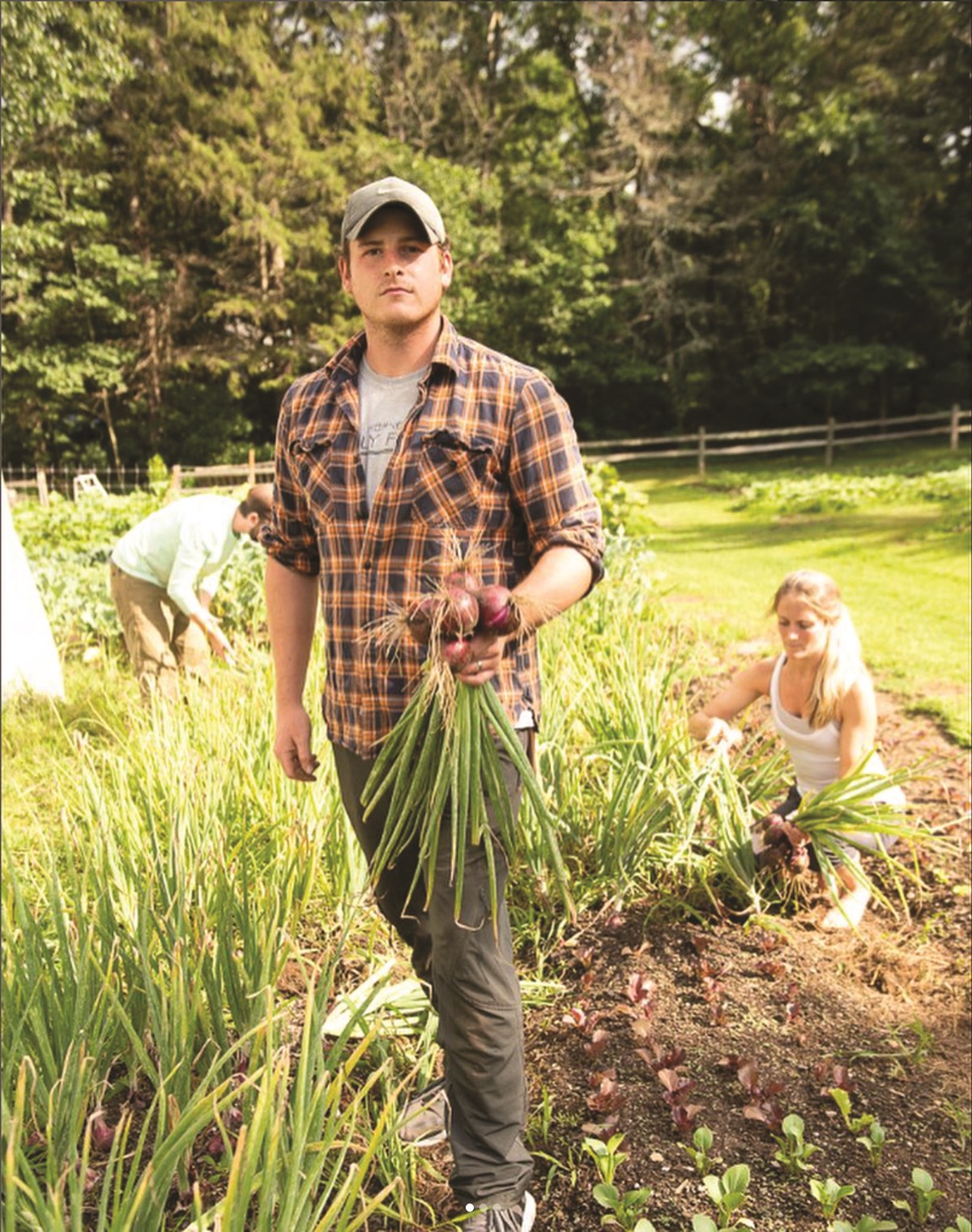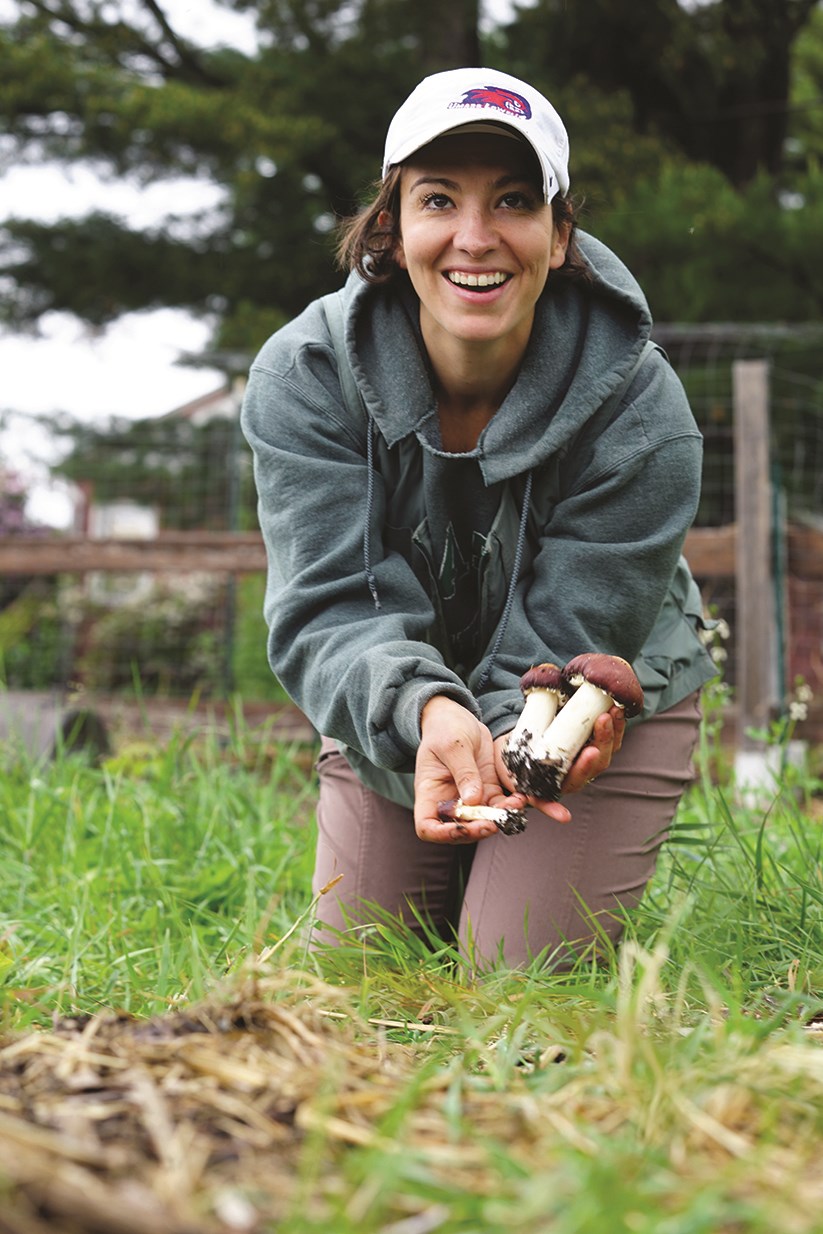How Alumni Farmers, Winemakers Deal with Unpredictable Weather

10/04/2023
By Ed Brennen
“If you don’t like the weather in New England now, just wait a few minutes.” Mark Twain is widely credited for the old quip that’s as true today as it was in Samuel Clemens’ time.
UML alumni who make their living tending to local farms and vineyards understand the fickle nature of New England weather better than anyone. From droughts to nor’easters, they’ve seen it all. Here’s what a few of them had to say about contending with our ever-changing elements.
Grapes have a notoriously delicate temperament, which makes growing them for wine production such a challenging blend of science and art. That’s particularly true in New England, according to Eric Preusse ’83, founder of Broken Creek Vineyard and Winery in Shrewsbury, Massachusetts.
“You have to deal with either rain, extreme cold or humidity—all the stuff that grapes don’t like,” says Preusse, an electrical engineering alum who started Broken Creek with his wife, Peggy, in 2011. They recently sold the business, but Preusse will be staying on for a year to get the new owners up to speed on viticulture and winemaking.
A native of Westborough, Massachusetts, Preusse says recent summers have been particularly extreme.
“There’s an old expression in the wine industry: Grapes don’t like wet feet,” he says. “When you get a lot of rain, like we did in 2021, you have to deal with all kinds of mold and fungi that attack the grapes and the leaves.”
Conversely, the hot and dry 2022 had Preusse wishing that he had invested in an irrigation system for the 40-acre vineyard.
Even during the winter, when grape vines are dormant, things can get bad. “I lost some vines because of the cold,” Preusse says. “There was no snowpack to insulate the grapevines, so they suffered.”



